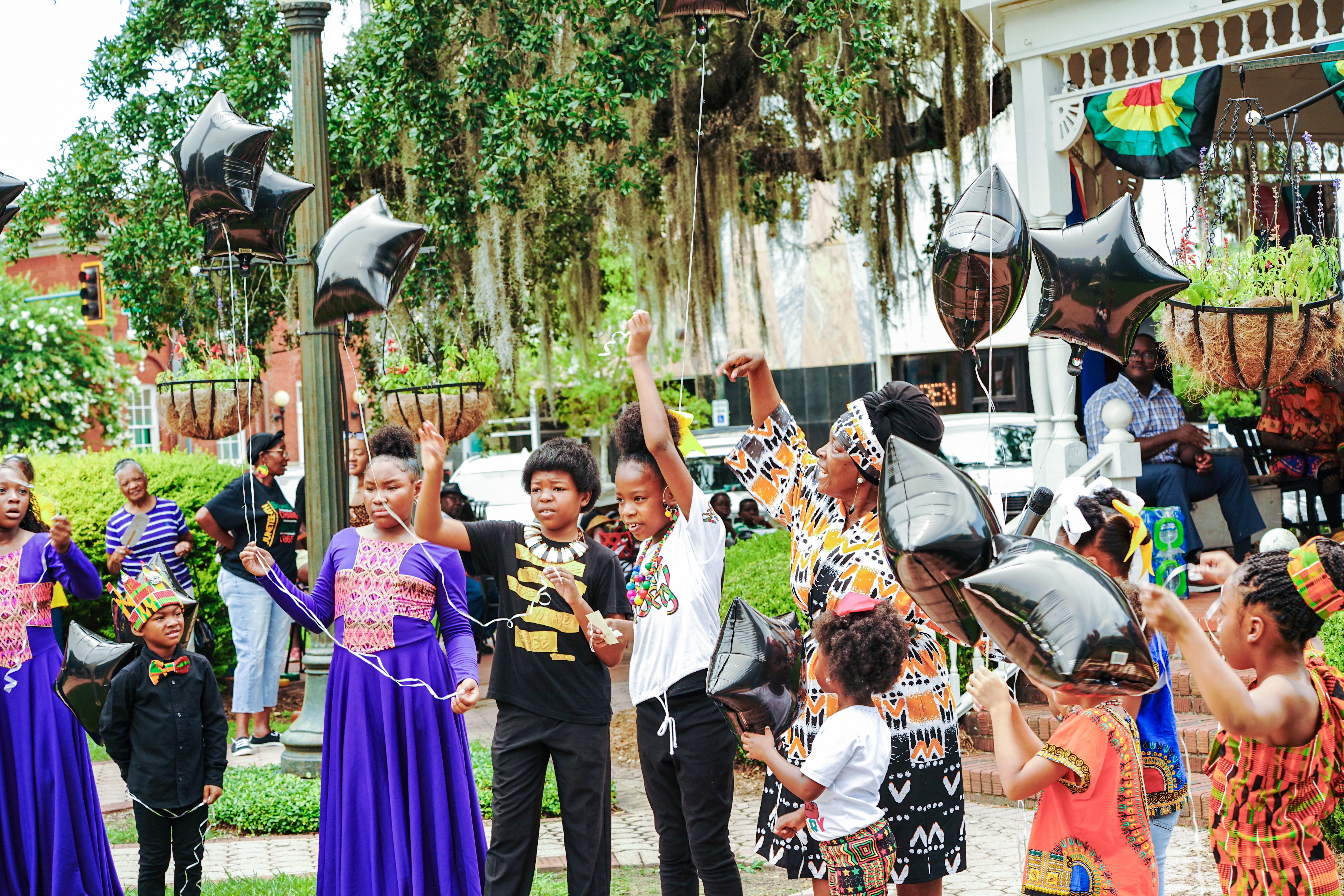Griffin biography reconstructs a ‘Southern way of life’
Published 12:34 pm Saturday, August 6, 2011
The Bainbridge Living magazine is now available in its usual outlets, and I was asked by former managing editor Carol Heard to contribute a book review for this edition on the political biography of former governor and Bainbridge native Marvin Griffin.
The book, released in June, was written by Scott E. Buchanan, an assistant professor of political science at The Citadel, in Charleston, S.C., and director of the Citadel Symposium on Southern Politics.
I loved the book’s title, Some of the People Who Ate My Barbecue Didn’t Vote For Me, and subtitled, The Life of Georgia Governor Marvin Griffin.
The politics of segregation dominates. Yet, that was the way it was when Griffin was politically active during the last mid century. But the book also chronicles Griffin as a man who deeply loved his Georgia, and who used his political power to advance social causes to make life better for all Georgians. One of his favorite quotes was, “Rugged individualism makes good newspaper copy, but today, our people expect and demand certain services of government.”
Today, he may not have liked being called “progressive,” but that’s what the author labeled him in his time in office, because Marvin Griffin won new money and new taxes from the legislature to improve agriculture, schools, teacher salaries and engage in monumental road building all across the state. On building roads, Griffin said it was time to get Georgia “out of the sticks,” and he built roads not only in his native Decatur County, but also in counties where he did not win politically towards his election as governor.
He then became the first Southern governor to hit the road and stump the nation, seeking new industry for new jobs for the people of Georgia. His progressive efforts towards road building and advances in education now made Georgia a solid investment for new industry. All during his term, he lobbied for new industry, saying, “The dreamy romantic old way of cotton plantations is gone forever.”
As I was reading about the segregation issues, it brought back personal memories, ones that I had neither ignored nor had long forgotten. Coming to Florida in the early 1950s, I viewed segregation through the eyes of a 13-year-old. It was just there, but I had no serious thoughts about the issue one way or another.
In my family, I could never recall my parents or either set of grandparents ever having said an ugly word or holding any particular prejudices against any person or persons of race, creed or color. It simply never came up in my presence.
Upon moving to Florida, I came upon obvious white and colored divisions. In the Sears store in St. Petersburg and other stores, there were signs designated “white” and “colored” drinking fountains, and “white” and “colored” rest rooms. “Colored” riders sat in the back of the bus. After dark, “coloreds” did not leave their neighborhood, nor did they drive their cars into traditional white areas.
Enrolling in school, there didn’t seem to be anything different from schools I had attended in elementary grades. In our small town, there were no real minorities, so the school was all-white, as it was in St. Petersburg High School. It was sometime later that I discovered a segregated schools system existed in St. Petersburg — schools for white students, schools for black students.
Yet, at that age, it was not a personal concern. I was not bothered by it. My ethnic background was heavy Italian on one side and Irish Catholic on the other.
But now, in the early 1950s, newly ensconced in the segregated South, my only family reminder came from my Italian grandmother who said, “You have to abide by it. That’s the way it is.” About the only person I ever heard her grumble about was Harry Truman.
Yes, and that was the way it was.
Years later, as one of the editors of the campus newspaper at Florida State University, I was involved with a big news story at the time, when the first black student enrolled. It was 1962, and I remember our entire newspaper staff — blazing liberals that we were — rejoicing at the significance of the event, without anyone defiantly blocking the school-house door.
While still at FSU, and a part-time reporter with The Tallahassee Democrat, I also was involved reporting on the lunch counter sit-ins, the boycotts of the city buses and movie theater demonstrations.
I also have another vivid memory of a few years earlier, as a new U.S. Army recruit, when I was sitting in a large unsegregated room, mingling with black and white young men representing many Southern home towns. The first order of indoctrination came from a white sergeant who said, that while on post at Fort Jackson, blacks and whites were recognized as equals in all facilities. But leaving post to go into the immediate city of Columbia, S.C., everyone was expected to recognize the rules of segregation.
The political biography of Marvin Griffin is very well done, and very well researched. It chronicles a political era of the South when popular political rhetoric championed the white man’s way of life. Quoting Alabama Gov. George Wallace in his inaugural speech at that same time, “Segregation today, segregation tomorrow, segregation forever.”
While reading the book on Marvin Griffin, I was also reading a political autobiography by Fred Karl, a man involved with Southern politics in Florida during the same time. Karl was an attorney, a state representative from Daytona Beach, then a state senator, and later a Florida Supreme Court Justice. In 1963, he also was a candidate for governor.
He writes of the personal turmoil in Florida legislative politics over the segregation issue during this time, but he also writes how newly thinking legislators were beginning to question its constitutional and moral legitimacy as an individual atrocity upon black citizens.
It was also a political time of Gov. Leroy Collins, who began his courageous call for more civil rights for all people of the state, less hatred and more tolerance. Collins paid the price in later years when he ran for the U.S. Senate, but was defeated by a conservative Republican, Ed Gurney, who tagged his opponent “Liberal Leroy.”
Those were tough personal times. Certainly, as in all historical eras, they must be chronicled. They were colorful times, and they birthed colorful politicians defending a fading way of life.
There is a longer review of the Griffin book in the Bainbridge Living magazine. If you are also interested in the book, you can get it on-line through amazon.com, or through Vanderbilt University Press at $49.95.
Jim Smith writes a weekly column for The Post-Searchlight. He can be reached through his email at: bainbooknook@yahoo.com., or at his website: jimsopinons.com, or by cell 229-254-2753.





